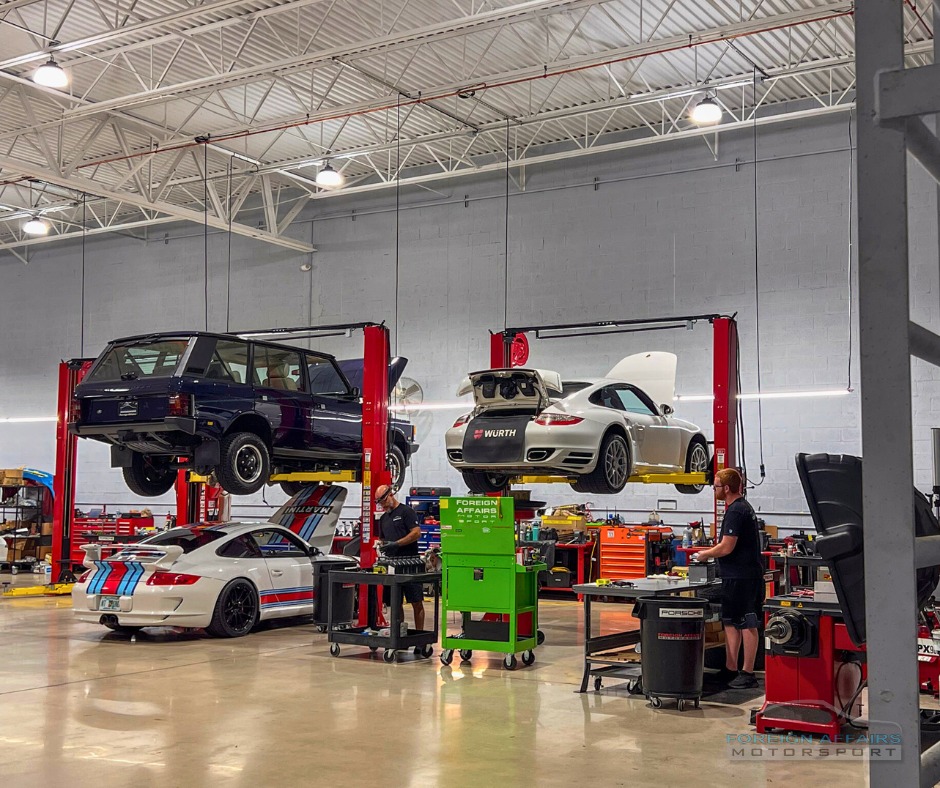Kollective Automotive Group Fundamentals Explained
Kollective Automotive Group Fundamentals Explained
Blog Article
The smart Trick of Kollective Automotive Group That Nobody is Talking About
Table of ContentsHow Kollective Automotive Group can Save You Time, Stress, and Money.Getting My Kollective Automotive Group To WorkThe Best Guide To Kollective Automotive GroupSome Known Factual Statements About Kollective Automotive Group The Definitive Guide for Kollective Automotive GroupThe Single Strategy To Use For Kollective Automotive Group
Reliable advertising and marketing methods in advance have always been important whenever one is considering buying a brand-new vehicle. The even more positive the public assumption of a certain cars and truck maker, the better the opportunities its dealer will certainly have in not only making the final sale; but likewise, following it up with quality repair work solutions.Sharp dealerships know exactly what their clients desire and require far better than any individual else operating in the area. In a very real feeling, organization relations between domestic manufacturers and their lots of dealerships have not always been particularly friendly. Numerous of those organization conflicts in between them came from long-term arguments often related to such things as awarding geographical areas.
the growing numbers of completing affiliated franchises within that exact same assigned area. Those exact same representatives further ended that if vehicle producers reduced the number of their affiliates, within that same set area, that brand-new car sales volume for those staying dealers would unquestionably increase substantially. Nonetheless, couple of producers thought it.
Kollective Automotive Group Fundamentals Explained

Such actions sent out a positive message to prospective buyers. The expanding variety of new dealers offering their brand name of cars and truck within a little area should imply that the manufacturer, in inquiry, not only produces leading quality automobiles; however also, that the growing need for its several models led corporate officials to open up extra outlets to better offer the demands of the public.
That had not held true, before the First World Battle, when the majority of residential cars and truck makers instantly restored their dealer franchises at the end of the schedule year. kollective auto group. Automatic renewal paid for a certain degree of service safety and security particularly for reduced quantity suppliers. Franchise business revival warranties like that had actually all however vanished by 1925 as vehicle producers routinely terminated their least lucrative outlets.
Unknown Facts About Kollective Automotive Group
Such callous treatments only softened after the Second Globe Battle when some domestic automakers began to expand the size of franchise agreements from one to five years. Carmakers may have still booked the right to terminate agreements at will; however, several franchise contracts, beginning in the 1950s, consisted of a new provision aimed straight at another similarly annoying trouble specifically guarding dealer succession.
Not particular as to what they need to do to fight this expanding menace, Detroit's Big 3 opted to perform business customarily. luxury car maintenance tips. They reasoned that if their present organization methods proved ineffective, after that they can simply overhaul their procedures to far better match their requirements in the future. That type of service thinking appeared reliable especially in the 1970s and 1980s
One continual source of irritation between dealers and cars and truck producers concerned the duty distributors must be playing in their firm's decision-making procedure. Throughout the initial half of the 20th century, legions of accountants and program directors had rubber-stamped virtually all choices accepted by their individual Boards of Supervisors. These program heads, with the solid backing of their particular boards, believed that they understood what was ideal for their affiliates.
The 8-Minute Rule for Kollective Automotive Group
The brand-new, hectic international market presented a large variety of phenomenal new financial and monetary difficulties never ever pictured by Detroit's extremely conventional top management before. Especially, the different service circumstances that occurred at the time of the Centuries would have been much much less extreme had Detroit's Big Three adopted a more aggressive company stance when they had the chance to do simply that in the 1970s and 1980s.
Essentially, Detroit's Big Three rejected to acquiesce to their growing needs by their numerous electrical outlets for higher freedom and even more input on the company decision-making procedure itself. Its board members also went so much regarding classify some of the dissenting dealerships as "abandoners." In their minds, it was simply a matter of principle and practice.
The tiniest perception of corporate weakness, in turn, may trigger dubious rumors concerning the future leads of those cars and truck makers. Detroit's Big 3 made it quite clear that it would not tolerate such activities. Detroit auto titans firmly insisted that their lots of representatives should try whenever feasible to resolve any kind of unproven business rumors that might spread out discord among their rank-and-file.
Kollective Automotive Group Can Be Fun For Everyone
Understood for its clever use resources, this new worldwide business spirit approved seminar among distributors, marketing experts and suppliers. Under this even more open-end plan, each participant lent its expertise to the others with the complete objective of producing the finest possible items at the least expensive price. Nobody company controlled that team's inner circle.
Some sort of monetary assistance, perhaps in the kind of considerable, direct subsidies, could be very much in order below. Nevertheless, absolutely nothing took place. That was most unfortunate because the lack of direct economic aid by Detroit's Big Three did not help to boost brand-new car sales in the least
The 1990s saw other pushing financial problems come forward - https://calendly.com/jamesayala10001-proton/30min. Most of those issues focused on the growing need of a lot of dealerships to keep respectable profit degrees in the middle of an ever-dwindling regional market. That problem was worsened even additionally by the necessity positioned on Detroit's Big 3 to much better take care of the many grievances lodged against their outlets by disgruntle clients

Kollective Automotive Group - An Overview
The fact that distributors hardly ever won in the courts might have accounted for their reluctance to pursue that details choice. A lot of judges favored manufacturers over dealerships stating that business bad moves, a lot more often than not, stemming from the inappropriate actions of the dealers themselves, accounted for their present financial predicaments.
Also those retailers prevented by genuine franchise business limitations, delighted in a website certain quantity of company autonomy when it pertained to purchasing and dispersing their goods and services. That was not true for most of auto dealerships whose suppliers continuously challenged every business action they made. Those arbitrary, and sometimes, counter user-friendly plan modifications positioned neighborhood car dealerships in a very rare business scenario as they strove to do the best thing for their lots of customers.
Vehicle dealers supply a series of services associated with the acquiring and marketing of cars and trucks. Among their main functions is to serve as intermediaries (or intermediaries) between automobile producers and customers, buying automobiles directly from the manufacturer and afterwards marketing them to customers at a markup. Additionally, they commonly provide financing choices for customers and will aid with the trade-in or sale of a client's old automobile.
Together, these divisions work to give a seamless experience for auto buyers. When purchasing a cars and truck from a car dealership, there are several papers you will require to have on hand.
Report this page